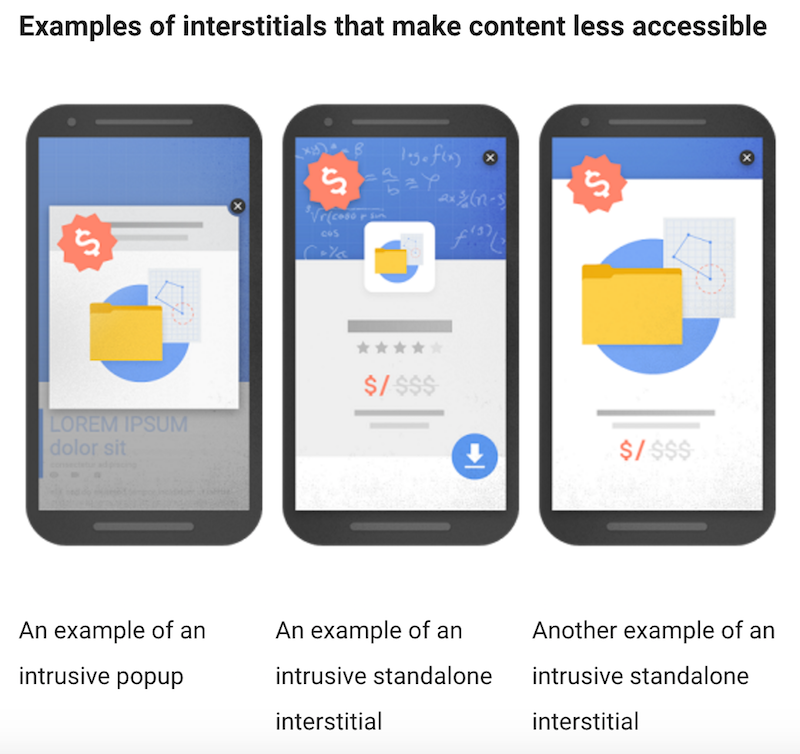Google to penalize annoying mobile interstitials
Last year, Google unleashed Mobilegeddon on the world in an effort to make the web more accessible by favoring mobile-friendly sites in the mobile SERPs.
Last year, Google unleashed Mobilegeddon on the world in an effort to make the web more accessible by favoring mobile-friendly sites in the mobile SERPs.
Last year, Google unleashed Mobilegeddon on the world in an effort to make the web more accessible by favoring mobile-friendly sites in the mobile SERPs.
Now, Google is upping the ante by taking aim at sites that use intrusive interstitials.
Starting January 10, 2017, Google will update its algorithm so that sites “where content is not easily accessible to a user on the transition from the mobile search results may not rank as highly.”
In a post on the Official Google Webmaster Central blog, Google Product Manager Doantam Phan provided examples of techniques that Google isn’t a fan of:
- Showing a popup that covers the main content, either immediately after the user navigates to a page from the search results, or while they are looking through the page.
- Displaying a standalone interstitial that the user has to dismiss before accessing the main content.
- Using a layout where the above-the-fold portion of the page appears similar to a standalone interstitial, but the original content has been inlined underneath the fold.

Some common techniques won’t be penalized. These include legal notices, login dialogs on password-protected sites, and banners that don’t take up too much screen real estate and can be dismissed easily.
Not surprisingly, many cheered Google’s announcement, hoping that it will help bring about an end to tactics that frequently annoy end users.
But not everyone is thrilled. Rafat Ali, the founder of travel news site Skift, remarked on Twitter that “Now Google wants to define how publishers run our audience acquisition strategies. Will hurt email newsletters most.”
While he noted that the popup his site uses to invites readers to sign up for an email newsletter doesn’t appear on the first page a reader visits and therefore believes “we’re insulated for most part,” he also had some choice words for Google.
Now Google wants to define how publishers run our audience acquisition strategies. Will hurt email newsletters most. https://t.co/ZWXzws0Veq
— Rafat Ali (@rafat) August 23, 2016
Resources
Analytics The 2023 B2B Superpowers Index
Analytics Data Analytics in Marketing
Digital Marketing The Third-Party Data Deprecation Playbook
Digital Marketing Utilizing Email To Stop Fraud-eCommerce Client Fraud Case Study
Obviously, publishers will want to monitor Google’s update carefully, lest they find themselves penalized.
But Google’s Phan noted that “this new signal is just one of hundreds of signals that are used in ranking” and added, “the intent of the search query is still a very strong signal, so a page may still rank highly if it has great, relevant content.”
That suggests the penalty might not be significant, or won’t affect some publishers as much as others, so publishers will need to wait until next year to see how this update pans out.